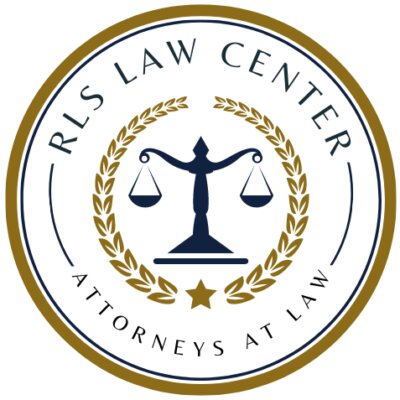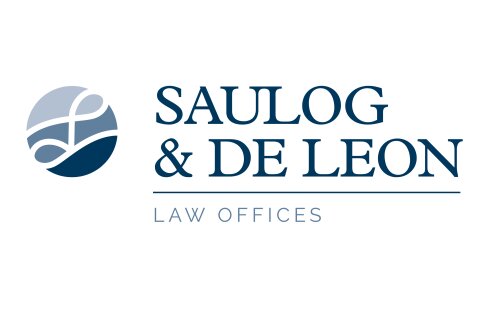Best Dangerous Product Lawyers in Philippines
Share your needs with us, get contacted by law firms.
Free. Takes 2 min.
Or refine your search by selecting a city:
List of the best lawyers in Philippines
About Dangerous Product Law in Philippines:
Dangerous Product law in the Philippines regulates the manufacturing, distribution, and sale of products that pose risks to consumers. This includes products that are defective, contaminated, or otherwise unsafe for use. The law aims to protect consumers from harm and hold manufacturers and distributors accountable for any damages caused by their products.
Why You May Need a Lawyer:
You may need a lawyer in cases where you have been injured or suffered harm as a result of using a dangerous product. A lawyer can help you understand your legal rights, file a claim for compensation, and navigate the legal process to seek justice for the damages you have suffered. Additionally, a lawyer can represent you in negotiations with the product manufacturer or distributor to ensure you receive fair compensation for your injuries.
Local Laws Overview:
In the Philippines, the Consumer Act of the Philippines (Republic Act No. 7394) governs issues related to dangerous products. This law mandates that manufacturers, importers, distributors, and sellers of products ensure that their products are safe for consumer use. If a product is found to be defective or dangerous, the responsible party may be held liable for any damages caused to consumers.
Frequently Asked Questions:
Q: What is considered a dangerous product in the Philippines?
A dangerous product in the Philippines is one that poses a risk to the health or safety of consumers due to defects, contamination, inadequate warnings, or improper instructions.
Q: How can I prove that a product is dangerous?
You can prove that a product is dangerous by documenting any injuries or damages caused by the product, obtaining expert opinions on the product's safety, and presenting evidence of any defects or hazards associated with the product.
Q: What legal remedies are available for victims of dangerous products in the Philippines?
Victims of dangerous products in the Philippines may be entitled to compensation for medical expenses, lost wages, pain and suffering, and other damages resulting from their injuries.
Q: How long do I have to file a claim for a dangerous product injury in the Philippines?
The statute of limitations for filing a claim for a dangerous product injury in the Philippines is typically two to four years, depending on the specific circumstances of the case.
Q: Can I file a class action lawsuit for a dangerous product in the Philippines?
Class action lawsuits are not common in the Philippines, but multiple individuals who have been harmed by the same dangerous product can collectively file a claim against the responsible party.
Q: Can a manufacturer be held liable for damages caused by a dangerous product in the Philippines?
Yes, under Philippine law, manufacturers, importers, distributors, and sellers of dangerous products can be held liable for any damages caused by their products to consumers.
Q: What should I do if I have been injured by a dangerous product in the Philippines?
If you have been injured by a dangerous product in the Philippines, seek medical attention immediately, preserve the product as evidence, document your injuries, and consult with a lawyer to explore your legal options.
Q: How much does it cost to hire a lawyer for a dangerous product case in the Philippines?
Many lawyers in the Philippines offer free consultations for dangerous product cases and work on a contingency fee basis, meaning they only get paid if they successfully recover compensation for you.
Q: Can I settle a dangerous product injury claim out of court in the Philippines?
Yes, you can negotiate a settlement with the responsible party or their insurance company outside of court, but it is advisable to consult with a lawyer to ensure you receive fair compensation for your injuries.
Q: Are there government agencies in the Philippines that regulate dangerous products?
Yes, the Food and Drug Administration (FDA) and the Department of Trade and Industry (DTI) are government agencies in the Philippines that regulate and monitor the safety of products sold in the market.
Additional Resources:
For more information on dangerous products in the Philippines, you can visit the official websites of the Food and Drug Administration (FDA) and the Department of Trade and Industry (DTI) for updates on product safety regulations and consumer alerts.
Next Steps:
If you have been injured by a dangerous product in the Philippines or have questions about your legal rights, it is important to consult with a qualified lawyer who specializes in product liability cases. A lawyer can assess your case, advise you on the best course of action, and help you seek the compensation you deserve for your injuries.
Lawzana helps you find the best lawyers and law firms in Philippines through a curated and pre-screened list of qualified legal professionals. Our platform offers rankings and detailed profiles of attorneys and law firms, allowing you to compare based on practice areas, including Dangerous Product, experience, and client feedback.
Each profile includes a description of the firm's areas of practice, client reviews, team members and partners, year of establishment, spoken languages, office locations, contact information, social media presence, and any published articles or resources. Most firms on our platform speak English and are experienced in both local and international legal matters.
Get a quote from top-rated law firms in Philippines — quickly, securely, and without unnecessary hassle.
Disclaimer:
The information provided on this page is for general informational purposes only and does not constitute legal advice. While we strive to ensure the accuracy and relevance of the content, legal information may change over time, and interpretations of the law can vary. You should always consult with a qualified legal professional for advice specific to your situation.
We disclaim all liability for actions taken or not taken based on the content of this page. If you believe any information is incorrect or outdated, please contact us, and we will review and update it where appropriate.
Browse dangerous product law firms by city in Philippines
Refine your search by selecting a city.

















